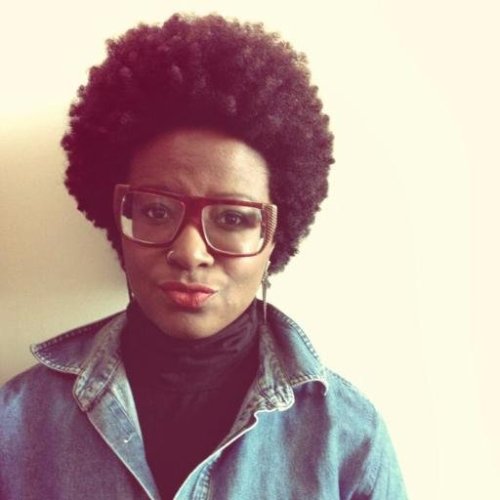Zenique was in the summer Writing Rejuvenation class, and she contributed to our rejuvenation in several ways. She gave me permission to share the following.
I was in Africa for less than a week when I encountered their Jesus: made up of carved marble or sculpted plaster painted peach with darker tresses that graced his robed shoulders. If he weren’t statuesque, he was seated at a table with his attendants, bread and wine and enclosed within a frame and hanging on a wall in a cathedral vestibule. His hands were always open and reaching out—the invitation, I suppose. There were always Bibles readily available too—in English, Luganda, Kinyarwanda, French, and Lusoga—sometimes more accessible than fresh meats or vegetables, rice or beans for a meager meal. The Holy Book, usually emblazoned with a foreign version of the title in gold on the front of the black cardboard-like cover. The cover—black like the sun-kissed African peoples, black like their sins—this cover was the singular thing from the imported religion that resembled them.
Day three in Rwanda.
The intern was in the middle of a discussion about cultural encounters when she asked Marianne to share her story. Already quite popular, Marianne, a pretty blonde that was somewhere between surfer and Barbie, had a big laugh and a larger than life American way about her. I was sitting in the back of the room nibbling at a new fruit that I discovered— a mix between a tomato and a passion fruit with a sweet-tart flavor once bitten into—when the golden girl started talking in her high-pitched voice.
“I was much younger when the genocide happened,” she began, “and even if I had been aware of it, I’m sure I would’ve been too consumed with my own American comforts to pay attention to it…”
I couldn’t see Marianne, but heard her voice and imagined her standing in front of a microphone propped up on a soapbox.
“And then I came here, and all these people—“ Marianne’s voice began to quiver. I placed the passion-tomato down on the desk so I could give the situation my full attention.
“—these people, they come up to me and want to hold my hand, give me hugs. They see us…and we’re like gods to them and I…I’ve done nothing for them.”
I could see her clearly now after craning my neck and following her voice across the room. Her cheeks were flushed and red against her blonde hair. She was having a sentimental moment with the class—practically six-day old strangers—and they offered their support with resonating silence and pensive head nods. But my hand was in the air, palm open, fingers wagging.
We’re like gods to them.
When I heard it, my temperature rose.
Even here I have to be subject to their superiority? I wanted to cut her ego down like sugarcane when the intern called on me.
“Growing up,” I began, “I lived in East. St. Louis, an all-black city in Illinois. There were no white people. But sometimes, my father would bring some friends home from work and they would sit in our house. White people in our house. If there was a woman and she’d let us, me and my sister would play in her hair. We would touch on them, turn over their arms and count freckles on ‘em. They were just so different, you see? Something so foreign intrigued us– but we weren’t worshipping them. And we definitely didn’t think they were gods. What we did think was that they were different and, consequently, fascinating.”
The class was still. No one affirmed my thoughts like they did Marianne. The intern, unprepared to respond, made an awkward segue into a concluding statement and promptly dismissed the class. Most of the students filed out. I sat for a moment with some Ugandan students who traveled from their country to Rwanda with us. They were applauding my rebuttal to Marianne’s statement when she walked up to us, making an untimely interjection.
“Zenique, right?”
I nodded. She was obviously still emotional.
“Thanks for saying that. I didn’t mean to offend anybody. It’s just that when we were in that village yesterday—,” the tears welled up in her eyes and her voice rose an octave, “and all those kids ran up to me, reaching up and clinging to my clothes like I was Jesus—I was just overwhelmed.”
I nodded again. I couldn’t console her nor could I understand what she was asking me to understand. The American sun had been kissing on me for twenty-nine years and, in these African parts, I was just as dark as a native and apparently God ain’t never looked like one of us.
